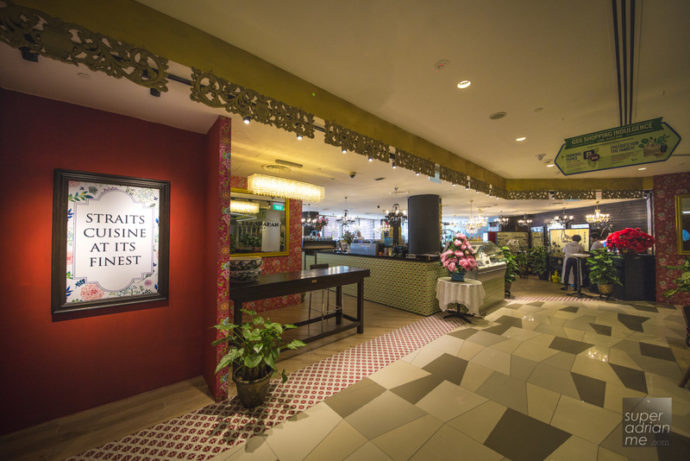
Ornate. Opulent. Colourful. Somewhat over-the-top. These are the reaction from guests at the new The Peranakan restaurant serving fine Straits Chinese cuisine. Its decor is truly bright and loud, but befitting as our numb senses (from the many new restaurant openings) require that visual spectacle to catch our attention. For me, it was akin to Alice in Wonderland – a playground for the senses!
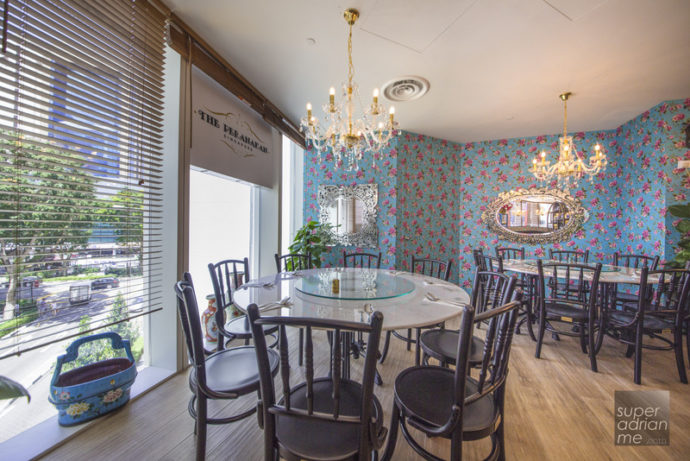
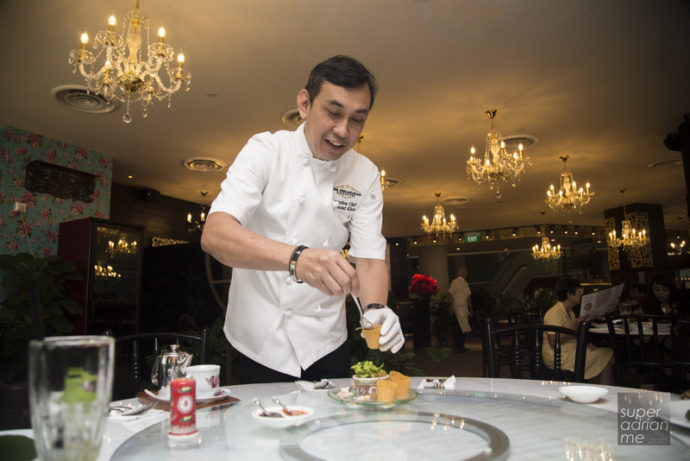
Peranakan Chinese or Baba-Nyonyas are known to be fiercely and aggressively protective of their recipes. And these vary from family to family and also depends on a family’s financial or social standing. But essentially, their recipes are almost considered a heritage, a legacy even, that is hopefully passed on to the next generation. The Peranakan’s executive chef Raymond Khoo is one such Peranakan son who is making his family proud.
“Cooking is in my DNA and in my family, it is not limited only to the women although my Great Grandma, Grandmother, Mum, Aunts and my Godmother have all played a significant role in shaping my preferences and sharpening my palette. My interest has always been in elevating F&B concepts to a different level and it has always been a personal dream to open a Peranakan restaurant combining the recipes of my Mum and Godma.” says Chef Raymond.
The Peranakan Dishes
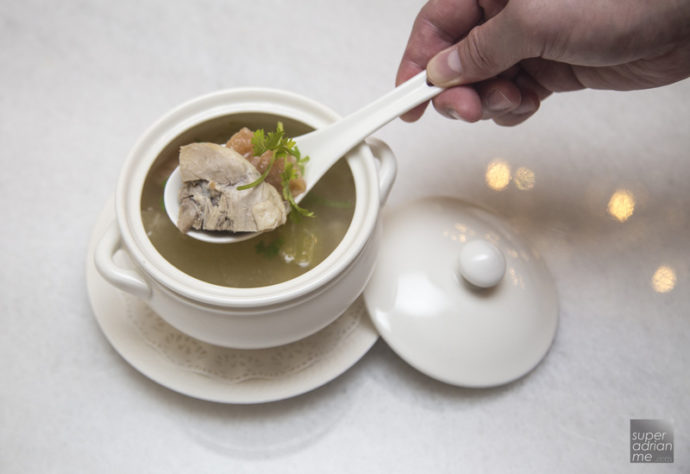
The authentic Itek Tim duck soup (S$7 a bowl) is boiled with salty vegetable and sour plum. This soup definitely helps to “kai wei” (开胃) or “open up your appetite”. Another all-time favourite is the Bakwan Kepiting (S$9 a bowl) which is a traditional pork ball soup in rich broth with bamboo shoots.
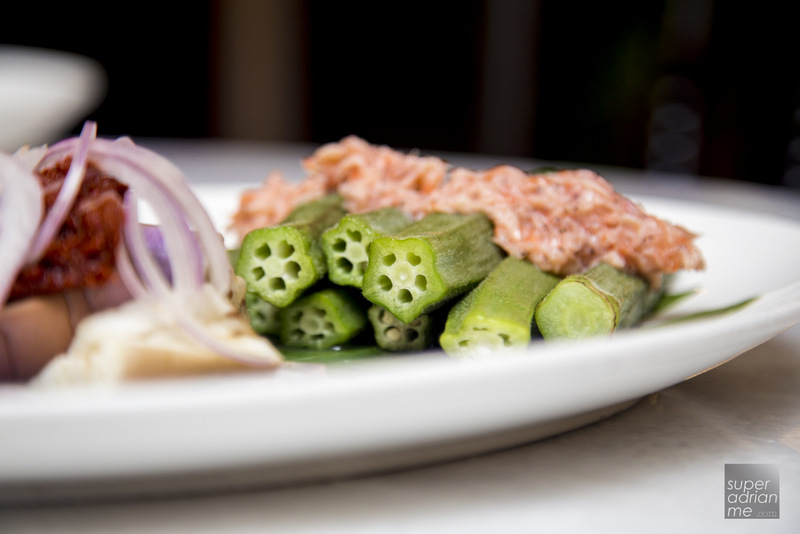
The light and refreshing Sayur Sayuran (S$12) consists of steamed lady’s fingers and brinjal served with shallots and topped with Chinchalok – fermented shrimp sauce.
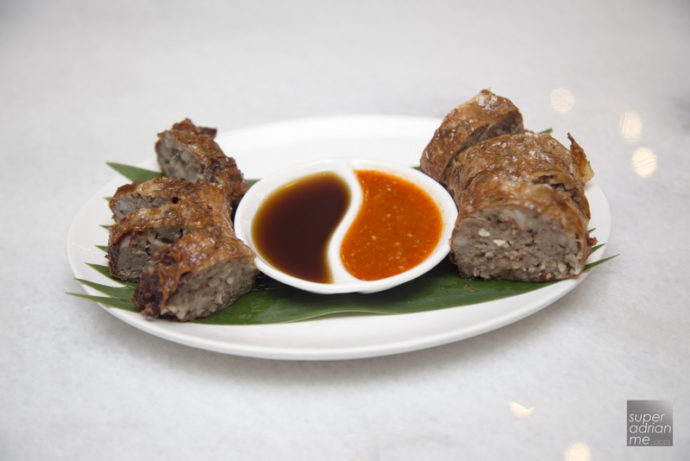
The hand-made Ngoh Hiang (S$15) comes with a choice of prawn or pork liver filling. This appetiser is primarily minced pork and chopped chestnuts flavoured with five spice and wrapped in a crispy beancurd skin. The mouth-watering chilli that comes with this Ngoh Hiang is a vinegar-based chilli sauce called Chilli Cuka and it goes perfectly with this dish, especially if you choose the richer pork liver filling.
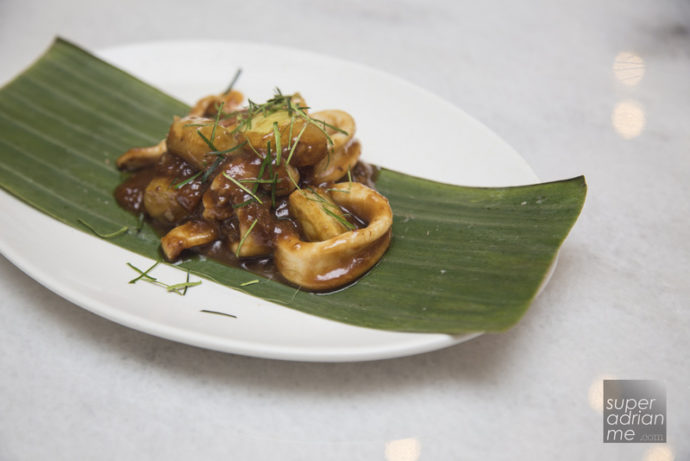
Sambal Sotong (S$17) is fried with tamarind and starfruit. The starfruit is an interesting ingredient as it helps to balance the spiciness and adds a uniquely juicy bite.
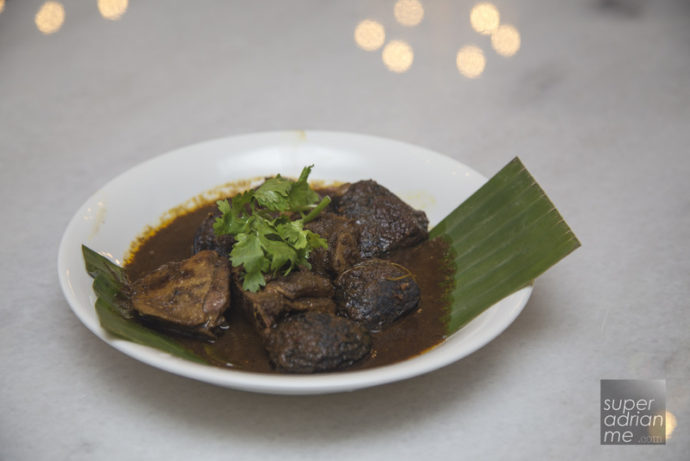
Ayam Buak Keluak (S$19) is a dish you either love or hate, but is synonymous with Peranakan cuisine. Buak Keluak are nuts from a tall mangrove tree called Pangium edule. They are poisonous but are made edible through fermentation. The nut’s flesh is dug out of its shell, cooked and stuffed back into the shell. At The Peranakan, the stuffing is 100% pure Buak Keluak and not mixed with other stuffing like meat. Moreover, each nut in this dish contains two nuts’ worth of pure flesh!
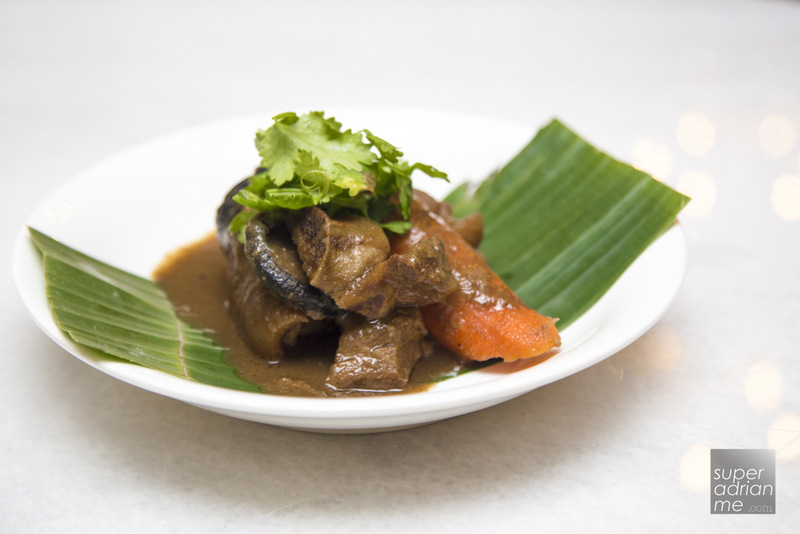
The Kaki Babi Pong Teh (S$19) uses pig trotters instead of the typical pork belly. This Malaccan style dish is cooked for six hours giving it a rich and flavourful taste plus extra tender meat that falls off the bone.
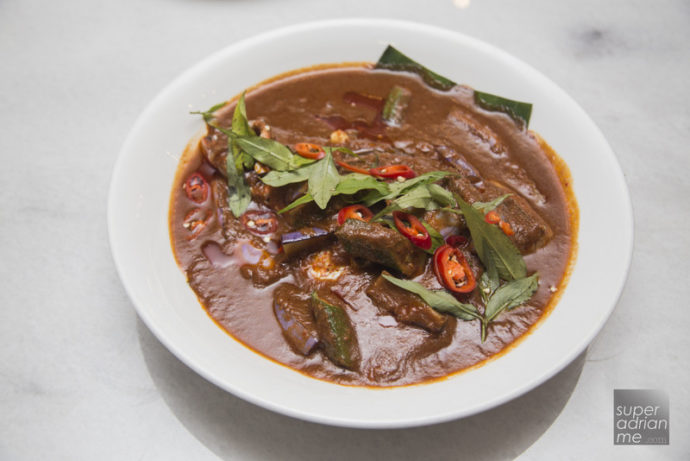
The Assam Pedas Fish Head (S$27) is spicy, sour and savoury. The aromatic chilli tamarind gravy goes well with white rice.
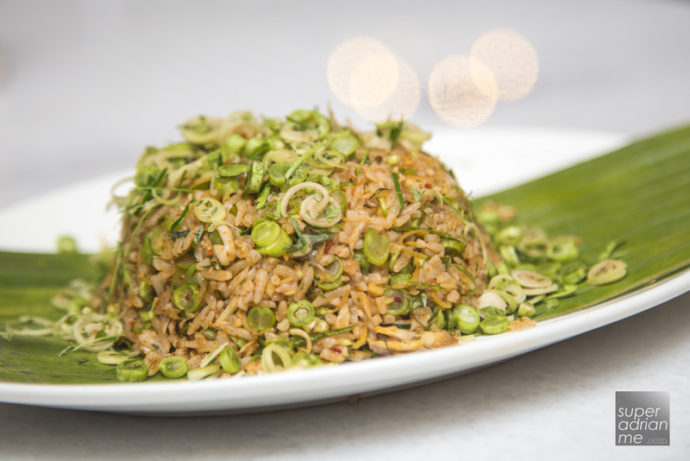
Talking about rice, the Nasi Ulam (S$15) is a must-try. Cold white rice is mixed and tossed with ingredients like lemongrass, kaffir lime leaves, turmeric leaves, sliced long beans, baked fish, minced salted fish plus the perfect amount of sambal belachan. Warning – this is highly addictive. The first mouthful might feel a little odd if you are not used to eating cold rice and raw herbs. But as you chew, the flavours become more and more intense and you will “unconsciously” keep going until you finish the whole plate.
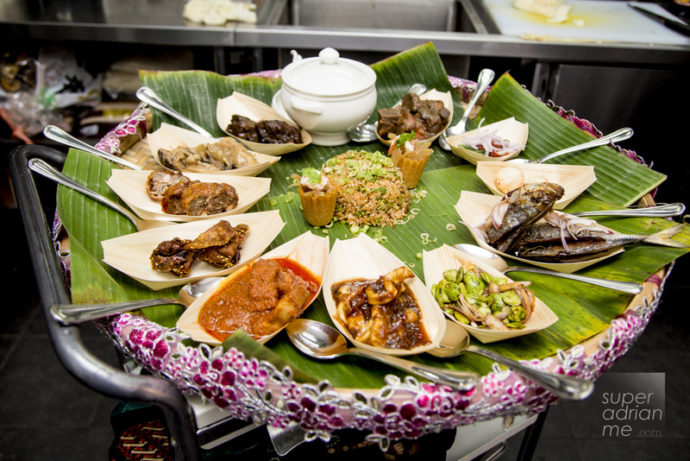
If you want a degustation of sorts, get a few friends and order the Tok Panjang Feast (S$45 or S$65 per person) to share. It consists of an array of different dishes so your taste buds get a blast. Orders are in sets of two. So if you are a group of six, you order three sets.
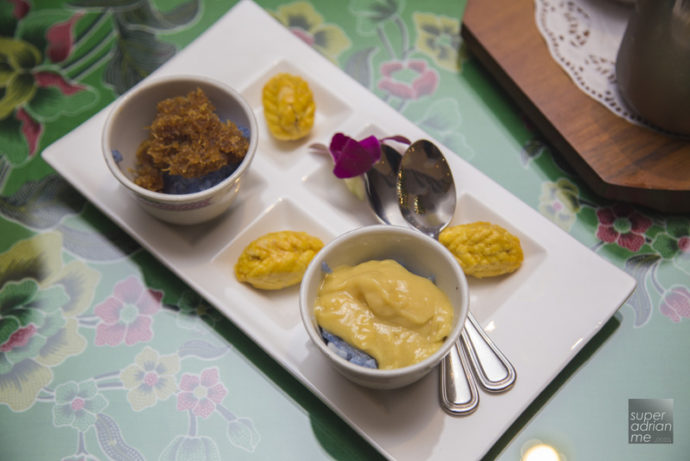
As always, leave space for dessert. The Pulot Enti Durian (S$5) which is glutinous rice with durian paste, will pleasure durian lovers. The smooth durian paste made from Malaysian durians is sweet with a tinge of bitterness. The Pulot Enti Kelapa (S$3.50) – glutinous rice with gula melaka coconut, is superb too. It is like eating “kueh kueh” with a spoon, without the sticky feeling on your fingers. I had two portions of each!
The Peranakan is located at #02-01, Claymore Connect@ Orchard Hotel, Singapore 238879 and opens daily from 11am to 10pm. Call +65 6262 4428 for reservations.

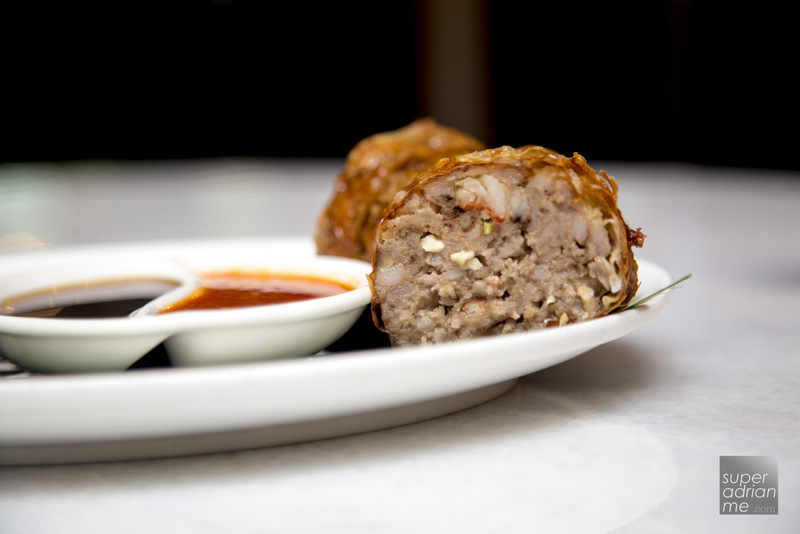

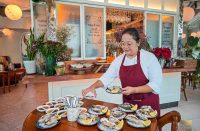
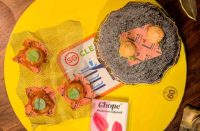
Pingback: The Peranakan Festival returns with the first Kamcheng Peranakan Gala Dinner on 7 June 2019 »